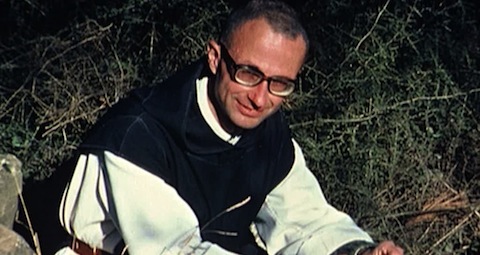June 12 | ![]() 0 COMMENTS
0 COMMENTS ![]() print
print

A primal understanding of the Eucharist
Fr Ronald Rolheiser
Christian de Cherge, the Trappist Abbott who was martyred in Algeria in 1996, tells this story of his first Communion. He grew up in a Roman Catholic family in France and on the day of his first communion he said to his mother: “I don’t understand what I’m doing.” She answered simply: “It’s okay, you don’t have to understand it now, later you will understand.”
Jesus, no doubt, must have given his disciples the exact same advice at the Last Supper, at their first Communion. When he offered them bread and said, “This is my body”, and then offered them wine and said, “This is my blood”, they would not have understood. There would have been considerable confusion and bewilderment: How are we supposed to understand this? What does it mean to eat someone’s body and drink someone’s blood? I suspect that in the face of their non-understanding, like Christian de Cherge’s mother, Jesus would have also said: You don’t have to understand it now, later you will understand.
Indeed in instituting the Eucharist at Last Supper, Jesus didn’t ask his disciples to understand what they were doing, he only asked them to faithfully celebrate it until he returned. Their understanding of what they were doing in celebrating the Eucharist only developed as they grew in their faith. But initially, Jesus didn’t ask for much of an understanding, nor did he give them much of an explanation for what he was celebrating with them. He simply asked them to eat his body and drink his blood.
Jesus didn’t give a theological discourse on the Eucharist at the Last Supper. He simply gave us a ritual and asked us to celebrate it regularly, irrespective of our intellectual understanding of it. One of his more-explicit explanations of the meaning of the Eucharist was his symbolic action of washing his disciples’ feet.
Little has changed. We too aren’t asked to fully or even adequately understand the Eucharist. Our faith only asks that we are faithful in participating in it. In fact, as is the case for all deep mysteries, there is no satisfactory, rational explanation of the Eucharist. Nobody, not a single theologian in the world, can to anyone’s intellectual satisfaction, adequately lay out the phenomenology, psychology, or even spirituality of eating someone else’s body and drinking his blood. How is this to be understood? The mind comes up short. We need instead to rely upon metaphors and icons and an inchoate, intuitive understanding. We can truly know this mystery, even as we can’t fully understand it.
During my seminary and academic training, I took three major courses on the Eucharist. After all those lectures and books on the Eucharist, I concluded that I didn’t understand the Eucharist and that I was happy enough with that because what those courses did teach me was how important it is that I celebrate and participate in the Eucharist. For all the intellectuality in those courses, their true value was that they ultimately said to me what Christian de Cherge’s mother said to him on the day of his first communion: You don’t have to understand now, later you will understand. Contained in that, of course, is the fact that there is something profound here that is worth understanding, but that it’s too deep to be fully grasped right now.
Perhaps this can be helpful in our search for what to say to some of our own children and young people who no longer go to church and who tell us that the reason they don’t go is that they don’t find the Eucharist meaningful. We hear that lament all the time today: Why should go to church, it doesn’t mean anything to me?” That objection is simply another way of saying what young Christian de Cherge said to his mother at his first communion: I don’t understand this. Perhaps our answer then could be along the lines of the response of his mother: You don’t have to understand now, later you will understand.
The British theologian, Ronald Knox, speaking about the Eucharist, submits this: We have never, he claims, as Christians, been truly faithful to Jesus, no matter our denomination. In the end, none of us have truly followed those teachings which most characterize Jesus: We haven’t turned the other cheek. We haven’t forgiven our enemies. We haven’t purified our thoughts. We haven’t seen God in the poor. We haven’t kept our hearts pure and free from the things of this world. But we have, he submits, been faithful in one very important way; we have kept the Eucharist going. The last thing Jesus asked us to do before he died was to keep celebrating the Eucharist. And that we’ve done, despite the fact that we have never really grasped rationally what in fact we are doing. But we’ve been faithful in doing it because we grasped the wisdom in what Christian de Cherge’s mother to her son: You don’t have to understand this; you just have to do it.
— Fr Ronald Rolheiser is a Catholic priest and member of the Missionary Oblates of Mary Immaculate. He is president of the Oblate School of Theology in San Antonio, Texas. Visit his website at www.ronrolheiser.com











